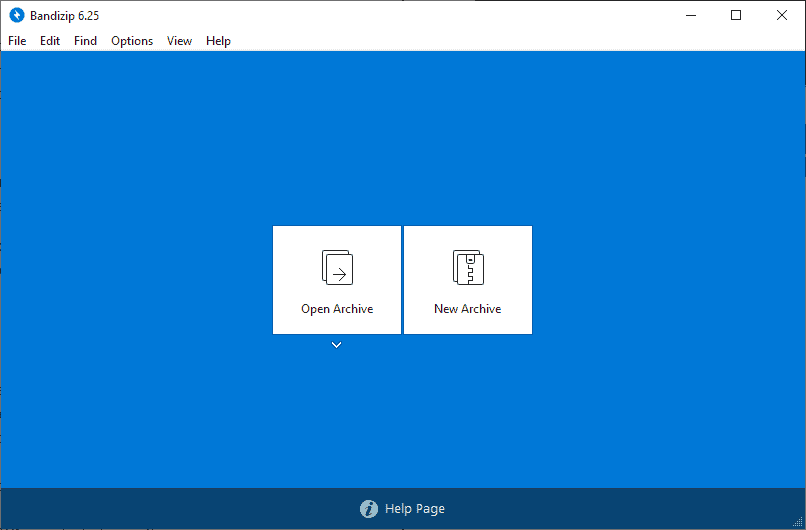by Martin Brinkmann on September 03, 2019 in Software – 22 comments
Windows users have quite a few options when it comes to the selection of so-called archivers. There are plenty of free and commercial programs available; while all support core features such as extracting zip archives or creating archives, there are differences in functionality and also speed and size of archives that get created.
Speed, the size of archives, or functionality may not matter much to users who use archivers occasionally only but if you happen to create or extract archives regularly, you may save lots of time if you happen to use an archiver that is slower than others when it performs certain operations.
Since it would take too much time to look at all the different compression formats out there, we decided to focus on the ZIP format as it is by far the most popular format.

The focus is on a number of popular choices; check the archivers section for a list of programs and versions that we used in the test.
Some notes:
- We kept the default settings as these are the settings that most users will use. The only change we made was to switch the format to ZIP if another format is enabled by default. You may get better results if you tweak the settings, e.g. change the word and dictionary size, level of compression, or number of CPU threads.
- We ran the compression tests twice for each program: once using the default settings and once with maximum compression enabled.
- The commercial programs WinRAR and WinZIP were tested as well.
- WinZip is configured to use the maximum compression when the ZIP format is used.
The archivers:
- 7-Zip 19.00
- Bandizip 6.25
- PeaZip 6.9.2
- WinRAR 5.71
- WinZip 23
The test archives
- Compression Test #1: Folder with 11 subfolders and 100 files, and a total size of 949 Megabytes.
- Compression Test #2: 180 files with a size of 3.46 Gigabytes. File types include documents, images, video files, and other file types.
- Extraction Test #1: A ZIP archive with a size of 1.36 Gigabytes.
- Extraction Test #2: 10 ZIP archives with a size between 13 Megabytes and 1.36 Gigabytes, and a total size of 4.09 Gigabytes and over 20000 files.
The results: compression
| Name | File #1 | File #1 Max | File #2 | File #2 Max | ||||
| Time | Size | Time | Size | Time | Size | Time | Size | |
| 7-Zip | 19s | 108002KB | 101s | 106781KB | 47s | 3555024KB | 473s | 3550401KB |
| Bandizip | 5s | 111813KB | 11s | 110791KB | 45s | 3554068KB | 46s | 3553130KB |
| PeaZip | 21s | 108002KB | 101s | 106781KB | 51s | 3555024KB | 484s | 3550401KB |
| WinRAR | 13s | 111438KB | 23s | 110978KB | 93s | 3551997KB | 94s | 3551604KB |
| WinZip | 39s | 107234KB | 116s | 3551667KB | ||||
The results: extraction
| Name | File #1 | File #2 | ||
| Time | Time | |||
| 7-Zip | 12s | 70s | ||
| Bandizip | 8s | 117s | ||
| PeaZip | 12s | 69s | ||
| WinRAR | 13s | 94s | ||
| WinZip | 12s | 480s | ||
Analysis and conclusion
Some results were quit astonishing. Bandizip performed well in all compression tasks; it came first in all tests and often by a huge margin. For the first file, it took only 5 seconds and 11 seconds to compress it whereas the second fastest, WinRAR, took 13 seconds and 23 seconds to perform the same operation.
Bandizip was fastest for the second task as well as it took the software 45 and 46 seconds to compress the Gigabyte-sized archive in normal and best compression settings. 7-Zip did well in the default compression test as it was just 2 seconds slower than first-placed Bandizip. The software performed badly when settings were set to maximum compression though as it needed roughly 10 times the time Bandizip required.
Second-placed in this test was WinRAR which required roughly two times the time of Bandizip.
Extraction was closer together: Bandizip performed best in the first task as it needed only 8 seconds to extract the first archive. Second placed were 7-Zip, PeaZip, and WinZIP which all needed 12 seconds. Third-placed WinRAR needed 13 seconds for the task.
The situation changed significantly when it came to the second extraction test. PeaZip was the fastest with 69 seconds followed by 7-Zip which just needed a second more. Bandizip, which performed really well in the other tests required 117 seconds to extract the archives. WinZip came in last with a running time of 480 seconds.
The free archivers performed well during tests and at least one of them managed to beat the commercial programs in all tests. WinRAR did perform better than WinZip in all tests despite ZIP being WinZIPs main format.
Speed and size are just two factors that play a role when it comes to compression software. The two factors are important but others, e.g. compression options, format support, or business support, may play a role as well.
As far as recommendations go: if you compress a lot of files, you may want to check out Bandizip as it performed really well. If it is compression size you are after, you might want to test 7-Zip or PeaZip instead. WinRAR may be an option if you don’t mind creation RAR archives. An added bonus to that is that you may use PAR tools to create recovery files.
For extraction, you could pick any of the programs with the exception of WinZip as it performed poorly in the second extraction test.
Now You: Which extraction software do you use, and why?